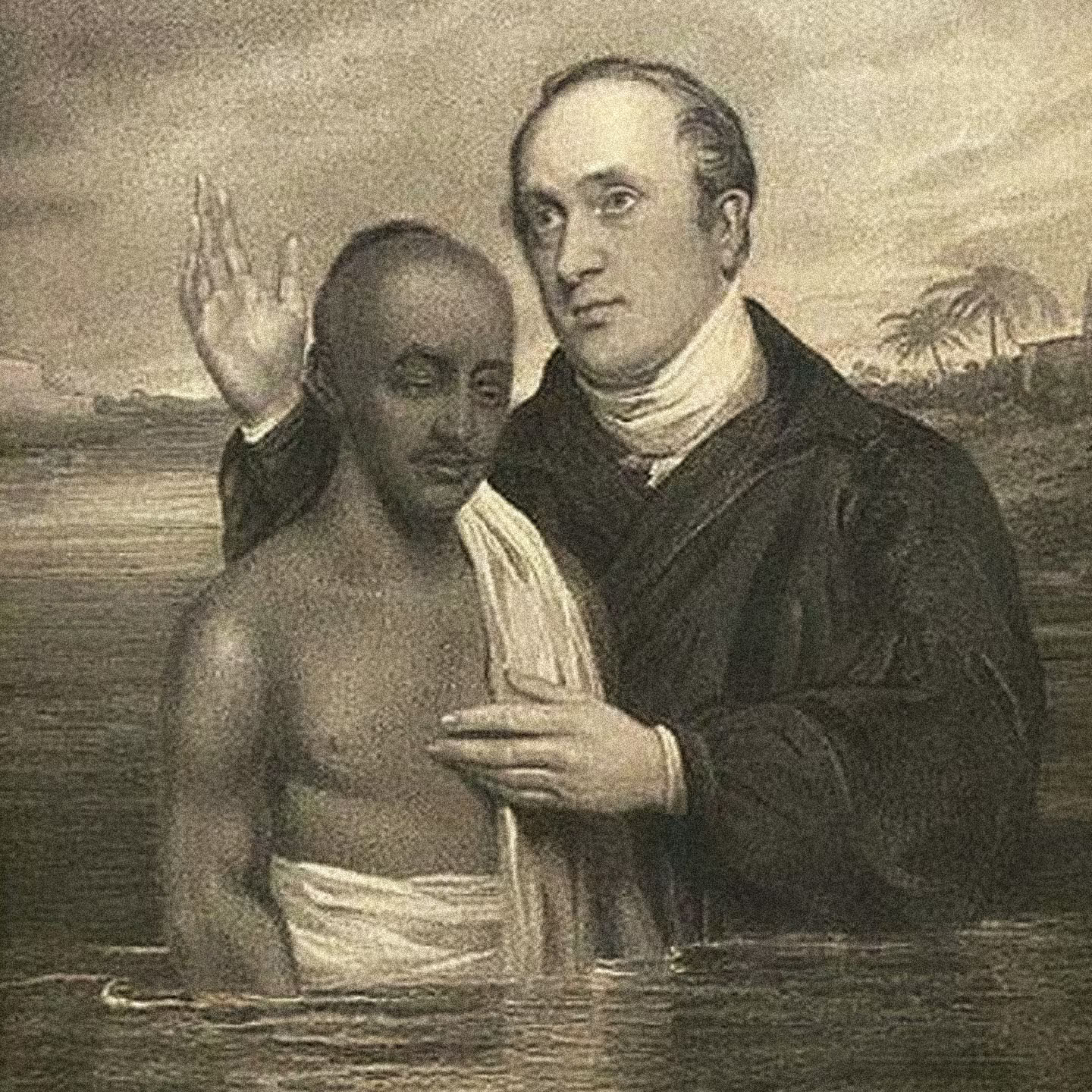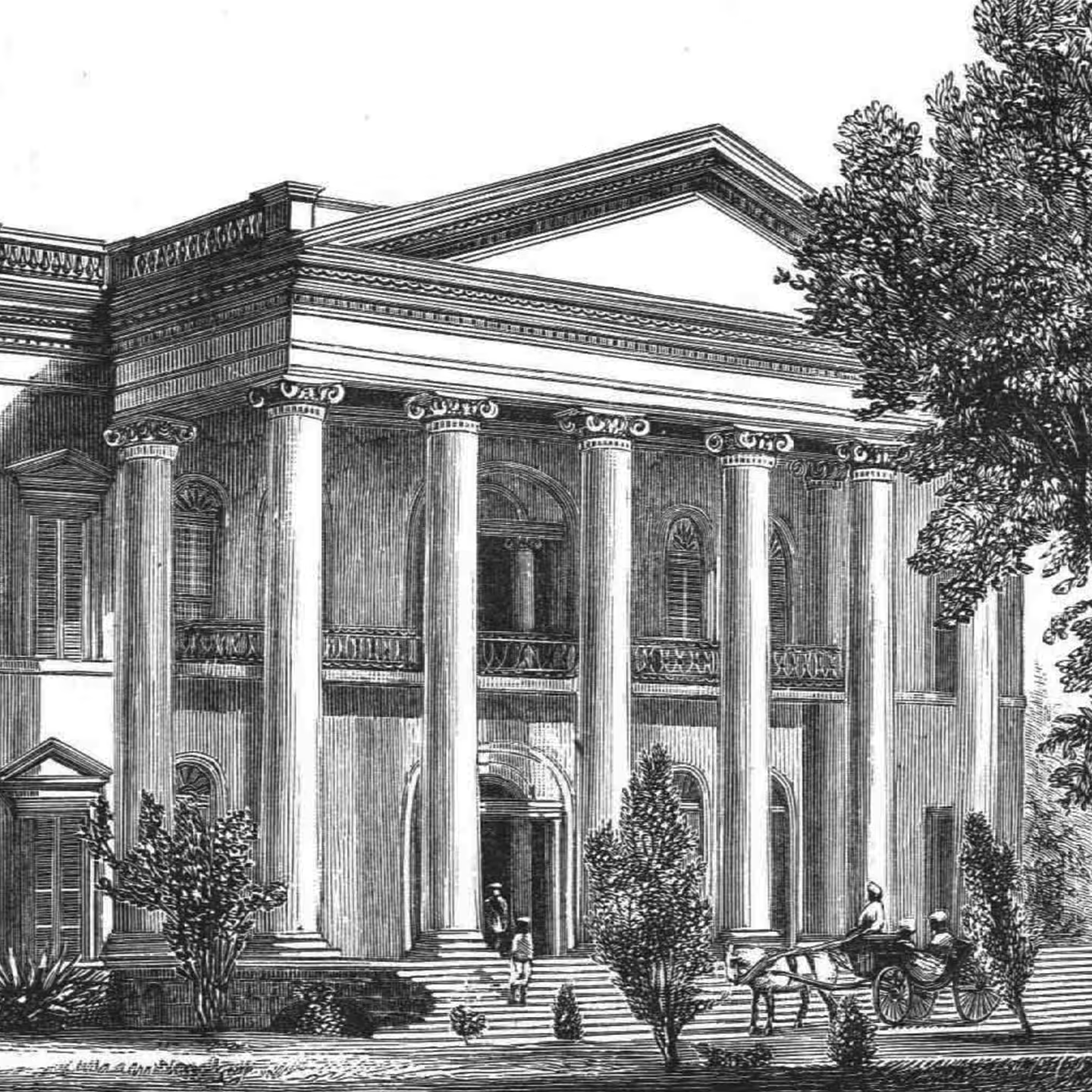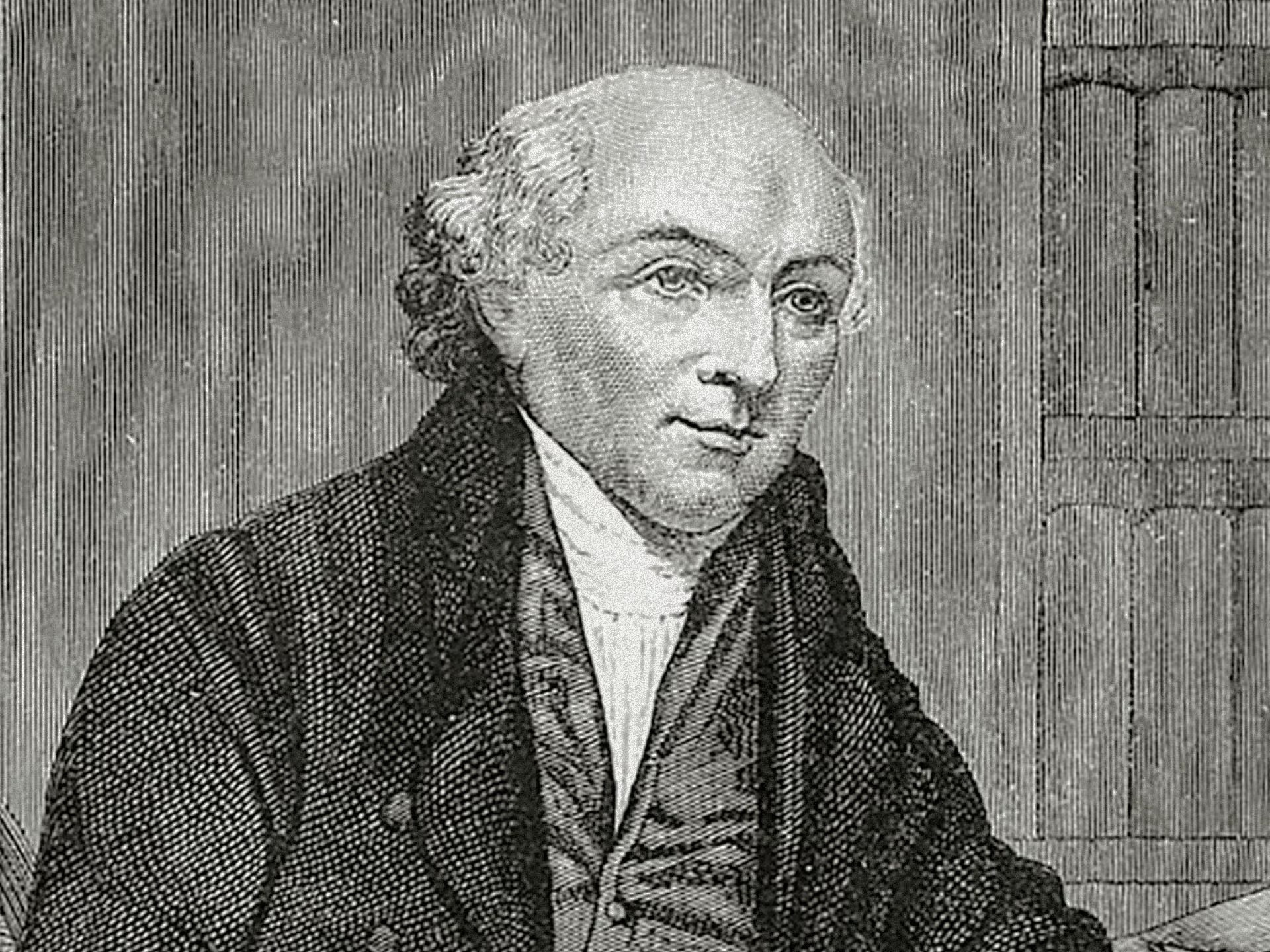“Expect great things from God; attempt great things for God.” William Carey didn’t just write these words—he lived them. Known as the Father of Modern Missions, Carey’s obedience to God shaped the course of modern missions and left a legacy that continues to inspire believers today. Yet despite his profound impact around the world, Carey humbly considered himself a “wretched, poor, and helpless worm,” seeking not to magnify his own name, but to exalt his Savior.
Early Years: A Pricked Conscience
William Carey was born on August 17, 1761 in Pury End, England. Though Carey was raised in a churchgoing family, his heart was far from the Lord, and he admitted to being “addicted to swearing, lying, and unchaste conversation.” At 14, he began work as a shoemaker's apprentice, where a co-worker named John Warr boldly shared with Carey about his need for a Savior. Warr was a dissenter to the Church of England, so at first, Carey viewed him primarily as a debate partner. It wasn’t until he was 15 years old that something changed for Carey.
One day at the shop, Carey deliberately exchanged one of his own counterfeit shillings for a real coin, hoping to steal the money for himself. Afterward, his conscience was pierced, and shame overwhelmed him. Overcome with guilt, Carey began to understand his need for Christ more than ever before.
Two years later, Carey attended a prayer meeting where he heard a sermon on Hebrews 13:13, “Therefore let us go to him outside the camp and bear the reproach he endured.” Carey felt this was a calling from the Lord to leave the Church of England and become a Baptist, later serving as a traveling preacher for a small Baptist congregation.

Marriage and Ministry
In 1781, Carey married Dorothy Plackett. Although they were married for twenty-six years, their marriage was marked by hardship, including the loss of three children, financial strain, and ongoing health challenges.
Despite an early rejection from ordination (he was deemed too boring), Carey became the pastor of a church in Leicester, England in 1789. Around this time, God began to burden Carey’s heart for the lost around the world. Carey was convinced that the Great Commission in Matthew 28:18–20 was not just for the first disciples—it was a command for the church today.
In 1792, Carey published a pamphlet called An Enquiry into the Obligation of Christians, making the case for global gospel ministry. Later that year, he preached his now-famous sermon on Isaiah 54, urging believers to “expect great things from God; attempt great things for God.” That same year, alongside 14 other men, Carey helped found the Baptist Missionary Society, the first evangelical missionary society in the world.

Early Missions
In 1793, William Carey and his family set sail for India as the society’s first missionaries. After five difficult months at sea, they arrived in Calcutta and quickly discovered the difficulties of life in India. Dorothy, who reluctantly agreed to join Carey only if her sister joined them, contracted chronic dysentery. Within months, they moved five times, and their young son died of dysentery.
After her sister left to marry a British soldier, the stresses all proved to be too much for Dorothy. She began to experience paranoid delusions, accusing her husband of adultery, and even trying to kill Carey on occasion. Though other missionaries suggested Dorothy be put in an asylum, Carey chose to care for her at home. It is said that Carey translated the first version of the Bengali Bible while his wife wailed in the next room.
Not only did Carey face excruciating challenges within his family, but there were also problems within his ministry. Faced with financial, governmental, and societal pressures, he relocated his family to Serampore in 1800.

Conversions and Reforms
In 1800, after six long years of ministry, Carey baptized his first Indian convert, This marked a turning point in Carey’s ministry and over time, the work began to grow. Carey helped found the Serampore Mission and Serampore College, an institution committed to theological education for Indians of all castes.
With the help of other missionaries, Carey also established the Serampore Mission Press, which printed over 212,000 books in 45 languages. He became an advocate for social reform, speaking out against the horrific practices of infanticide and sati, or the burning of widows. He additionally helped the believers in India to confront cultural challenges such as the caste system, preaching a radical message of unity across economic, societal, and political divides.

Final Years
After Dorothy’s death in 1807, Carey remarried twice more. His second wife, Charlotte Rohmer, died in 1821 after years of illness. Carey continued his work in India until his death in 1834 at the age of 73. On his tombstone are the words: “A wretched, poor, and helpless worm. On Thy kind arms I fall.”
At the time of his death, William Carey helped translate the Bible into six languages, serving 41 years in India without a furlough. While the mission could directly account for 700 conversions, Carey’s ministry reached far beyond that number. His work helped shape modern missions and his ministry changed the spiritual landscape of India forever.
Even so, Carey wanted the main hero not to be himself, but God. It’s said that as he was dying, Carey called a fellow missionary to his side and said, “Mr. Duff! You have been speaking about Dr. Carey, Dr. Carey. When I am gone, say nothing about Dr. Carey. Speak about Dr. Carey’s Savior.”
William Carey lived to magnify Jesus. He believed that the Great Commission is not for the strongest, most adventurous, or most talented. It’s for all believers. Whether cobblers or cooks, astronauts or engineers, every Christian is invited into God’s mission to make disciples to the ends of the earth.
“Expect great things from God; attempt great things for God.”
Additional Resources
- Read Carey's letter to his son.
- Discover the depth of Carey’s lifelong faithfulness in Chapter 4 of Obeying the Great Commission.
